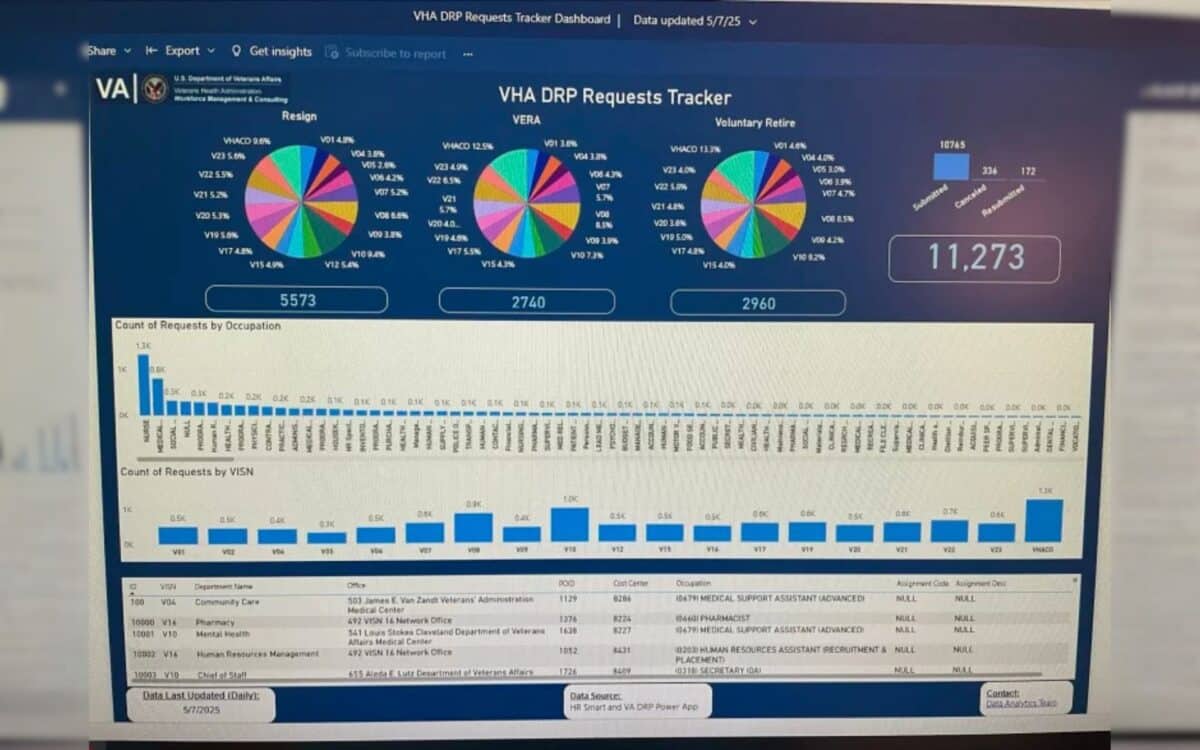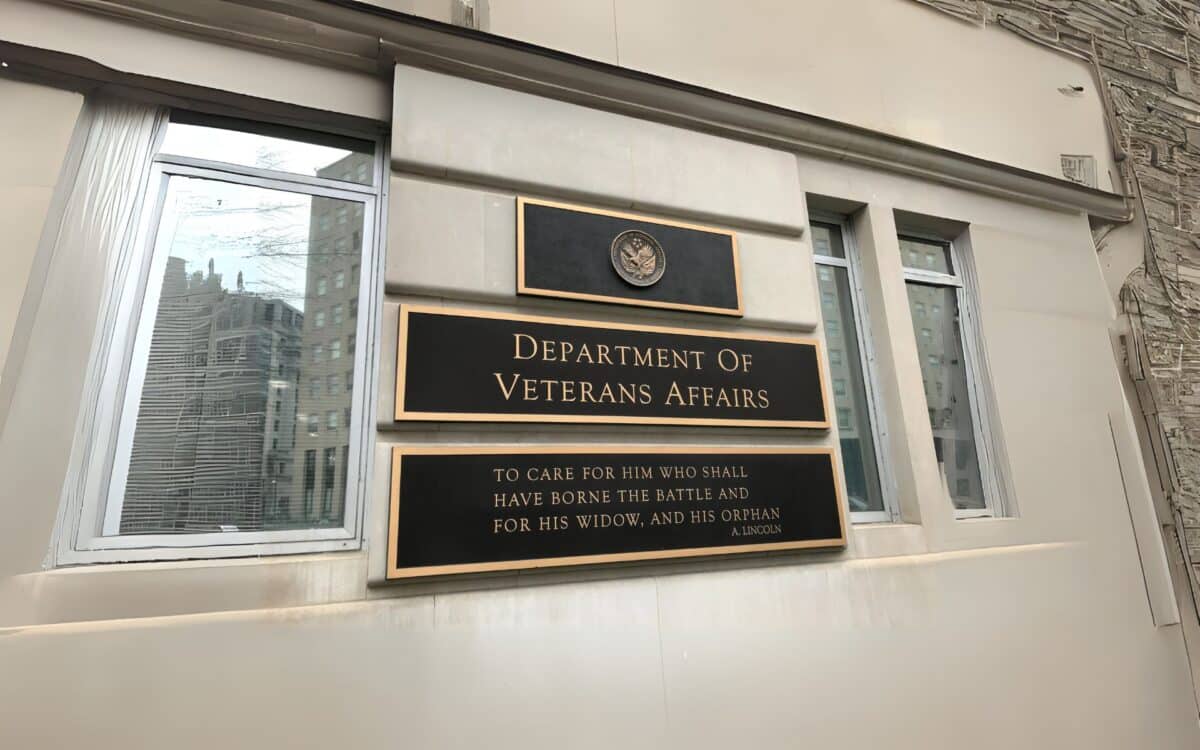The Department of Veterans Affairs (VA) is moving forward with a workforce reduction plan intended to shrink its staff by 15%, a move that has prompted widespread concern among veterans, lawmakers, and VA employees. More than 11,000 applications for deferred resignation have already been submitted by agency personnel across the country.
NPR reports that the initiative, part of a broader federal effort to streamline operations, has triggered debate over whether such cuts can truly be implemented without compromising the quality of health services for veterans. The agency insists that frontline care will remain untouched, but skepticism continues to grow.
Deferred Resignation Requests Surge Amid Federal Cuts
According to internal data shared with NPR, 11,273 VA employees nationwide have applied for deferred resignation under the Trump administration’s DOGE initiative. Among the most represented roles in these applications are nurses (about 1,300), medical support assistants (approximately 800), and social workers (around 300).
The VA currently employs approximately 470,000 people, including more than 371,000 health care professionals, operating across 1,380 health care facilities—comprising 170 VA medical centers and 1,193 outpatient clinics.

VA employees were informed via email that the deadline to apply for the program was extended from April 30 to May 16. Approved staff would be placed on administrative leave starting July 1, or seven days after the required paperwork is signed, and would be officially separated by September 30.For employees aged 40 or older, the timeline is adjusted based on legal notice periods, as outlined on myfedbenefitshelp.com.
Leadership Promises Protections for Frontline Staff
At a Senate hearing, Secretary of Veterans Affairs Doug Collins reaffirmed that no essential care roles would be eliminated :
I will not let you sit here and scare my veterans and scare my employees, because no one has discussed firing doctors or firing nurses,” Collins replied to a question from Sen. Richard Blumenthal.
We’ve always said that we’re going to keep frontline health care.
Despite these reassurances, Blumenthal challenged the logic behind the cuts :
It simply cannot be done. And you may give us a lot of verbiage here, but you’re not giving us facts. And facts are essential to accountability.
VA press secretary Pete Kasperowicz emphasized the selectivity of the program :
While all VA employees may apply for these programs, employees who provide direct or indirect care to veterans will only be approved in very limited circumstances when their separation fulfills mission needs. Approval for staff in these positions requires multiple high-level reviews, and VA anticipates very few of these applications to be approved.
Lawmakers Raise Concerns Over Provider Shortages
Senator Bernie Sanders focused his questions on structural shortages :
Do you acknowledge there’s a shortage of doctors, nurses, social workers in the VA?
– Collins responded,I acknowledge there’s a shortage for everybody in the health care industry on those same issues.
When pressed further, he said :
We are the same as every other health care system. We’re struggling to recruit doctors, nurses and others, just as anybody else, and that’s something we’re constantly in outreach about.
The secretary repeated the department’s intention to protect services :
We have been emphatic that we will not be cutting benefits and health care, only improving them.
Veterans and Employees Report Rising Anxiety
VA staff, 25% of whom are veterans, and many using the system themselves, are growing uneasy about the changes. A poll by Iraq and Afghanistan Veterans of America found that 81% of veterans are concerned that federal cuts could negatively impact their benefits and health care.
At a May 2 protest in Tucson, Arizona, Alex Maldonado from Veterans for Peace said :
Those are the people we need right now to answer phones, talk to veterans, talk to us about our appointments, just somebody to talk to.
Dan Clare, of Disabled American Veterans, echoed that worry:
A lot of veterans are calling us, and they’re worried because they’re afraid that this is going to affect their health care, this is going to affect the benefits.
He added,
The secretary might be able to find some efficiencies, might be able to do some amazing things. It’s just we’re not getting the answers to who’s being cut, what jobs are going away, how that can affect veterans.
A VA employee, who asked to remain anonymous, highlighted the emotional toll :
The mental stress so many people are working under, not knowing the status of their jobs, that indirectly also affects patient care.









